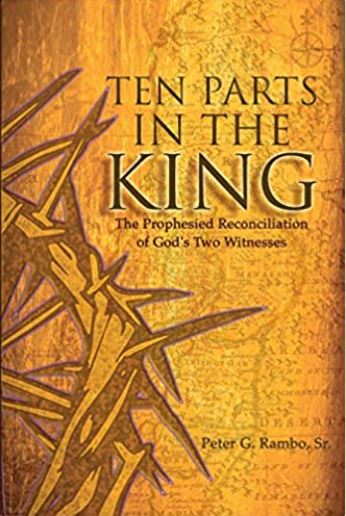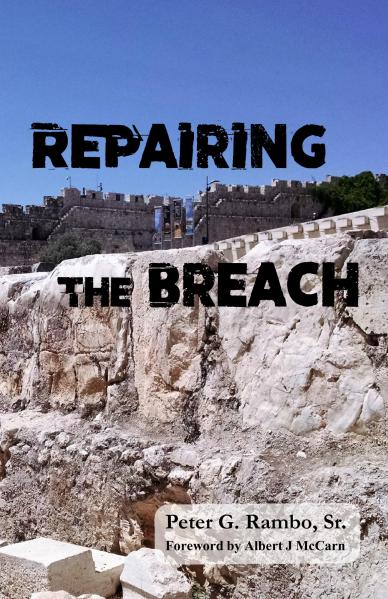As a young boy and through my teen years, I was reared in a church that was part of the Presbyterian Church in America (PCA) denomination. The actual congregation my family was a part of, Lebanon Presbyterian Church, was founded in 1775 with Scots Irish roots that connected her well to a system of doctrine often termed ‘Reformed.’ Today, many Presbyterian denominations have drifted into gross liberalism, but the PCA has remained fairly ‘conservative’ as the descriptor goes.
With the rich history and proud heritage of the Scots Irish Presbyterians, I was taught inculcated with the belief that the best and only reasonable understanding of Scripture was based on the Westminster Confession of Faith, a doctrinal statement forged by the Assembly of Divines at Westminster between 1643 and 1647. To question, or disagree with that document was tantamount to heresy. It was/is regarded as THE proper distillation of Scripture and departure from it potentially endangered the soul.
In my early 30’s, the Father reigned in my Jonah trip through the military and the business world bringing me to seminary and eventually a pastoral position in the Associate Reformed Presbyterian Church, another Scots Irish denomination with a long and storied history that adheres to the Westminster Confession of Faith (WCF). My own denomination viewed my seminary credentials with some distrust, as they did for most any candidate who attended a seminary that was not ‘confessional.’ I attended a very conservative seminary that had students and professors from a very broad base of doctrinal positions, but the exposure to other thought processes was considered to be potentially problematic. While my peers would disagree with my assessment, the questioning of belief structure is always more intense around pastoral candidates who ventured outside the chosen lines of ‘doctrinal purity.’
While I could go into much more detail with this explanation and give multiple examples, I offer this much to say,
Within Reformed denominations, Scripture is read through the filter of the Westminster Confession of Faith. More precisely, the Westminster Confession of Faith is a man-made document that governs the Reformed understanding of Scripture and thereby is held as a judge over the Word of God.
My intent, through a series of posts, is to demonstrate clearly that some parts of the WCF are grossly out of line with the clear Word of my King, and by doing so, I hope that the reader will question whatever doctrinal statement they may have bought into in order to identify areas of error that are not in accordance with Scripture.
Like most doctrinal statements, there is much good in the WCF, however, it only takes a few errors to radically alter a system of thought such that it appears to be truth while in fact it codifies and perpetuates falsehood. At times, that falsehood can have eternal consequences, and yes, I dared say that! Beware using the traditions of men to filter the Word of God!!
In this first installment, I want us to look at Chapter XIX (19) of the WCF. This chapter, titled Of the Law of God, contains 7 paragraphs which we will consider in turn. I will not exhaustively disassemble, my intent is only to clearly demonstrate that when held to the light of Scripture, the Westminster Confession of Faith does not hold water as tightly as I was taught. [Note: I have left in the Scripture proofs annotations so that the reader can see that each statement is in one way or another supported by some Scripture, though careful study reveals that the full counsel of Scripture is often not taken into account, or the verse used is taken out of context.]
I. God gave to Adam a law, as a covenant of works, by which He bound him and all his posterity, to personal, entire, exact, and perpetual obedience, promised life upon the fulfilling, and threatened death upon the breach of it, and endued him with power and ability to keep it.[1]
Here begins a solid paragraph with which I do not have any major issue.
II. This law, after his fall, continued to be a perfect rule of righteousness; and, as such, was delivered by God upon Mount Sinai, in ten commandments, and written in two tables:[2] the first four commandments containing our duty towards God; and the other six, our duty to man.[3]
In bold we have our first most curious statement. “This law … continued to be a perfect rule of righteousness.” Read this very slowly and comprehend: ‘Perfect rule of righteousness…’
Scripture indeed teaches that this law is THE perfect rule of righteousness, not ‘a perfect rule of righteousness.’ As we continue through the WCF’s commentary on ‘the Law of God,’ we will see that like most of Christendom, they may say it is a ‘perfect rule of righteousness,’ but they deny its authority or the standard of righteousness it teaches by diminishing it. Further, its perfection is obviously undermined by the denial that it is currently the standard of God and in the future will be the standard of God as taught by the Messiah from Zion. Isaiah 2:1-5 clearly teaches that “in the last days,” the nations will stream to Zion so that “He may teach us concerning His ways, and that we may walk in His paths, for the Torah will go forth from Zion and the word of the Lord from Jerusalem..”
III. Besides this law, commonly called moral, God was pleased to give to the people of Israel, as a church under age, ceremonial laws, containing several typical ordinances, partly of worship, prefiguring Christ, His graces, actions, sufferings, and benefits;[4] and partly, holding forth divers instructions of moral duties.[5] All which ceremonial laws are now abrogated, under the New Testament.[6]
Even a casual reading of this paragraph exposes multiple errors that are brazen contradictions of Scripture.
Our first is the use of the phrase ‘commonly called moral,’ followed by a seemingly intelligent statement beginning with ‘ceremonial laws.’ Understand, the idea of a division in God’s instructions (Torah) into ‘moral, ceremonial and judicial’ categories that can then be treated differently is entirely a man-made construct that is contrary to Scripture. God does not EVER in His instructions even remotely allude to the system Roman Catholic Christendom commonly calls the Three-fold Division of the Law. I have written about this error multiple times. In descending order of relevance, here are a three articles: The Error of Dividing the Law, Leviticus 19 ~ Apologetically, A Most Useful Chapter!, and Protestant Hypocrisy? .
Second, as part of the ‘ceremonial’ laws that are ‘abrogated,’ the WCF lists ‘several typical ordinances.’ Well, it would seem the Westminster ‘Divines’ have not read closely a few verses, like, Exodus 12:14 and 24 that say, “So this day shall be to you a memorial; and you shall keep it as a feast to the Lord throughout your generations. You shall keep it as a feast by an everlasting ordinance,” and “you shall observe this thing as an ordinance for you and your sons forever.” Christendom often plays with the definition of ‘forever,’ but they can’t argue with Malachi 4:4-6 that clearly states that in the last days (before the Day of the Lord) we need to ‘remember the Torah of Moses, even the statutes and the ordinances…’ Those verses were covered here. Folks, this is no small error. But, let’s continue.
Third, this paragraph having multiple gargantuan errors, we have to consider the phrase “all which ceremonial laws are now abrogated…” This sentence is stunning in its clear violation of a number of Scriptures. Besides the multiple places we are expressly told of ‘ceremonial laws’ being adhered to in the Millennial Kingdom [see Ezekiel 43-44 (esp. 43:18ff); Zechariah 14:16-21; and Isaiah 66:22-23], Yeshua (Jesus) Himself said, “Do not think that I came to abolish the Law or the Prophets; I did not come to abolish but to fulfill…” [FYI: ‘Abolish’ and ‘abrogate’ mean the same thing. See Merriam-Webster.] Yeshua says, “I did NOT come to abolish…” and the WCF says, “all which are abrogated (abolished)…” Guess who I believe?!!
There are more problems with this paragraph, but those three sufficiently put the kibosh on the whole chapter!! We’ll move on.
IV. To them also, as a body politic, He gave sundry judicial laws, which expired together with the State of that people; not obliging under any now, further than the general equity thereof may require.[7]
There are several issues with this short paragraph, chief of which is the assertion that the ‘State of that people’ has ‘expired.’ True, at the time of the writing of the WCF, the authors could hardly imagine a day wherein Israel would again exist as a nation, but even a simple reading of the Scripture in multiple places demonstrates that Israel proper will exist until heaven and earth pass away (and we are NOT talking about the Church’s abominable replacement theology). Jeremiah 31:35-37 as one example. But the further idea that the ‘judicial laws’ have expired stands false on several counts. First, see the ‘everlasting’ nature of God’s Law and the previously mentioned fallacy of dividing the Law into categories that can then be kept or ‘abrogated.’ Second, some of the parameters necessary for the employment of God’s Law may not currently be in place (i.e., Temple, Levitical Priesthood, Sanhedrin, etc….), but that in no way expires the Laws, it merely suspends them until the proper conditions again exist. And, Scripture promises that those conditions will again exist and the Laws will rightly be employed by the Messiah Himself. (See Isaiah 2:3-4; Psalm 2:7-12; Micah 4:2-3; etc.)
V. The moral law does forever bind all, as well justified persons as others, to the obedience thereof;[8] and that, not only in regard of the matter contained in it, but also in respect of the authority of God the Creator, who gave it.[9] Neither does Christ, in the Gospel, any way dissolve, but much strengthen this obligation.[10]
Here, very neatly, the WCF affirms that Yeshua does not ‘dissolve, but much strengthens the obligation’ of the ‘moral law,’ but by its absence, the Divines undermine the ‘ceremonial’ and ‘judicial’ portions of their divisions of the Law. Like the moral law that forever binds, Scripture previously presented declares that the rest of the law also forever binds, contrary to the WCF implication.
VI. Although true believers be not under the law, as a covenant of works, to be thereby justified, or condemned;[11] yet is it of great use to them, as well as to others; in that, as a rule of life informing them of the will of God, and their duty, it directs and binds them to walk accordingly;[12] discovering also the sinful pollutions of their nature, hearts and lives;[13] so as, examining themselves thereby, they may come to further conviction of, humiliation for, and hatred against sin,[14] together with a clearer sight of the need they have of Christ, and the perfection of His obedience.[15] It is likewise of use to the regenerate, to restrain their corruptions, in that it forbids sin:[16] and the threatenings of it serve to show what even their sins deserve; and what afflictions, in this life, they may expect for them, although freed from the curse thereof threatened in the law.[17] The promises of it, in like manner, show them God’s approbation of obedience,and what blessings they may expect upon the performance thereof:[18] although not as due to them by the law as a covenant of works.[19] So as, a man’s doing good, and refraining from evil, because the law encourages to the one and deters from the other, is no evidence of his being under the law: and not under grace.[20]
While this paragraph is largely correct in it wording and phrasing, neither the Westminster Divines nor present Reformed Presbyterians believe it according to how it reads.
Scripture uses the phrase ‘under the law’ (hupo nomon) eleven times. JK McKee’s scholarly book, The New Testament Validates Torah, demonstrates that the only consistent and reasonable understanding of this phrase in Scripture is ‘under the condemnation of the law.’ Ironically, that is exactly how the phrase should be understood in the above paragraph, however, the Divines intend the phrase in the commonly misused meaning that is pandemic in Christendom: we are not subject to the Law and it has no authority over us. Yet, in the very next lines they affirm that the law is ‘the will of God,’ defines sin, leads to Messiah, etc. Funny. Essentially, they see the Law as something to which they need only give mental assent while ignoring the actual doing of major parts of it.
Truly, we are not under the condemnation of the law, however, we are still responsible to it as the will of God, as a guide for sanctified living, as a definer and identifier of sin, as standard of righteousness, etc. All of those require that we ‘walk’ in obedience even as our Messiah did.
The last sentence is particularly amusing in that it is starkly contrasted by the actual actions of most of Christendom, never mind adherents to the WCF. The sentence says,
So as, a man’s doing good, and refraining from evil, because the law encourages to the one and deters from the other, is no evidence of his being under the law: and not under grace.
Over and over, from Christians of all stripes, I have been told that if I keep the Law, I place myself at risk of ‘losing my salvation’ because the immediate and false assumption is that I am trying to earn my salvation by works. Utterly absurd. Yet, I’ve heard the very fallacious line from friends, family and Reformed Presbyterian pastors whose own document states that ‘doing good…because the law encourages [it]…is NO evidence of being under the [condemnation] of the law…’ Amazing.
VII. Neither are the forementioned uses of the law contrary to the grace of the Gospel, but do sweetly comply with it;[21] the Spirit of Christ subduing and enabling the will of man to do that freely, and cheerfully, which the will of God, revealed in the law, requires to be done.[22]
In this last paragraph, I again see no error, however, the Reformers’ definition of what is the Law does not square with what Scripture says is the Law. As we have previously seen, the WCF sees the ‘ceremonial’ and ‘civil’ or ‘judicial’ aspects of the Law have been abrogated/abolished and therefore are not included in their definition of ‘Law.’ Conversely, the Torah, all of it, every jot and tittle according to Yeshua, applies until heaven and earth pass away.
The Reformers rightly understand that the law ‘reveals the will of God’ and is what is ‘required to be done.’ In that, they are again correct, but because they have a skewed view of what the Law actually is, their understanding and adherence, or non-, is, by definition, wrong.
As we have seen, Chapter XIX of the Westminster Confession of Faith both contains errors when held next to Scripture, and in some areas that are rightly stated, we find wrong implementation of understanding. Some readers may take comfort that you do not follow the WCF, however, beware, most other Christian doctrinal systems have similar errors in their understanding and adherence to the Law of God (Torah of Moses). Anytime we use the traditions or doctrines of men to filter Scripture through, we place them in judgment over the Word of God and allow them to be our judge of the Most High!
Beware the traditions of men!
We’ll explore other parts as I have time to study, read and write.
Shalom in Messiah.




















































































































looking forward to reading this more carefully.
LikeLiked by 1 person
We do need to evaluate our doctrinal statements carefully. It was Scripture that made me look harder at the WCF while I was still in the pulpit and the reason the denomination asked for my resignation was not because I was teaching contrary to Scripture, but because what I taught from Scripture was contrary to the WCF.
When I met with the Minister and His Works Committee members the first time for questioning I was the only one that brought a Bible, and, when I met with the full committee I asked to share Scripture and ask a couple questions, but was denied.
They were nice, but wanted to hear nothing that contradicted their doctrinal statement, even if straight from Scripture.
And, that was in a ‘conservative’ denomination.
Sad, but reveals the weight put on a flawed man-made document.
LikeLiked by 1 person
WoW!
LikeLike
Investing thing is, this confession appears to be very much Noahide-ish in its application with the general “moral” laws kept in place for social order and the rest left up to Judaism by. Strangely, this is also the position of some within Judaism being that those not Jews should simply be good Noahides and remain in the “Gentile” class. The really odd thing is, within Christendom, the tithe (which, in my mind falls under their “judicial” (a means to fund the government, (a tax, if you will) definition) is still retained and incorporated into the worship service under a ceremonial auspice as a fulfillment of Malachi 3:8-9. Strange.
LikeLike
Hey, when you pick and choose, why throw out the profitable instructions?
Never considered the Noahide slant, but that is interesting.
LikeLiked by 2 people
It’s interesting to note how “rabbinic” the whole application of the WCF is relying heavily on the traditions if the elders instead of the Holy Spirit to reveal the scriptures. The really strange thing is, these same guys will preach how the rabbi’s of Yeshua’s day totally missed who He was as a result of such. Hmm……
LikeLiked by 1 person
Hey, the Reformation was birthed from the tradition of the Roman Catholic church. Should we expect the daughter to be different than the mother? Or, another way, the apple doesn’t fall far from the tree…
That’s why we must go back to the beginning.
LikeLiked by 1 person
Are you possibly saying that rabbinic Judaism is ultimately the mother of Roman Catholicism being the natural outflow of rejecting and ejecting those who have faith in Yeshua and keep the commandments? Say it isn’t so!!
LikeLiked by 2 people
Ooooo…. Funny that both reject for the same reason…. Each protecting what they perceive to be their ‘turf.’. Neither desiring what Scripture says is HIS turf, namely keeping commandments AND having faith in/of Yeshua… Rev. 12:17: 14:12; 15:3; 20:4, etc…
LikeLike
Pingback: Westminster Confession Errors Pt.2 | natsab